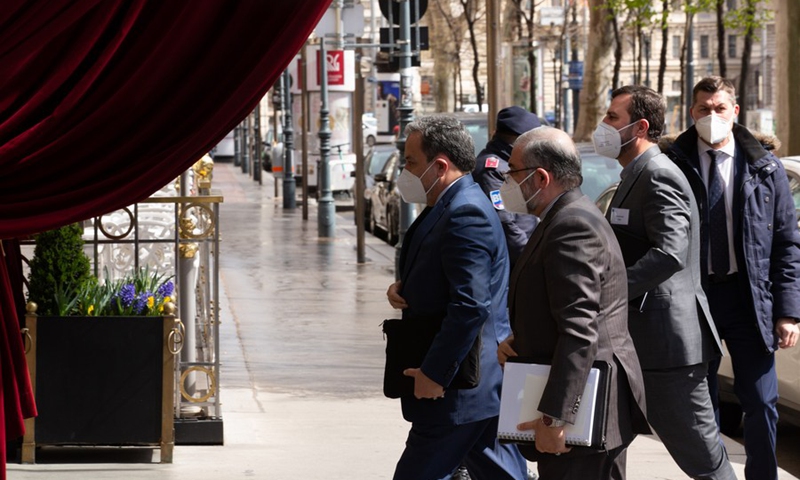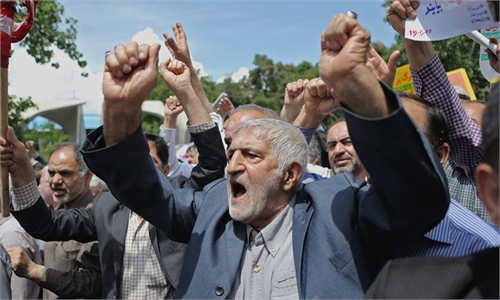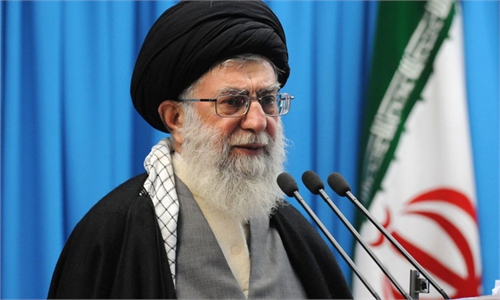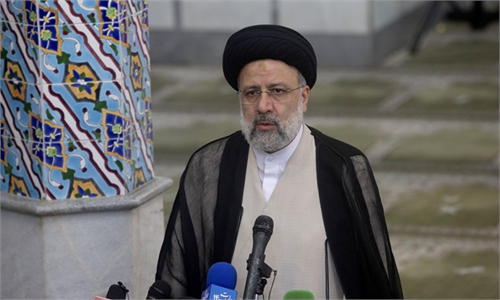
Iranian Deputy Foreign Minister Abbas Araqchi arrives at the venue of Iran nuclear deal talks in Vienna, Austria, April 6, 2021. (Photo: Xinhua)
Iran agreed Wednesday to resume talks on November 29 with world powers on reviving a nuclear deal after a five-month gap, with the US urging a quick resolution.
The indirect negotiations in Vienna, Austria come amid mounting pressure on Iran, with Western nations warning that the clerical state's nuclear work is advancing to dangerous levels and Israel threatening to attack.
European Union (EU) envoy Enrique Mora, who led six rounds of talks earlier in 2021 and recently flew to Tehran to seek progress, will again chair the November 29 meeting, the EU announced.
US President Joe Biden took office hoping to return to the 2015 agreement from which his predecessor Donald Trump bolted.
But the talks earlier in 2020 failed to secure a breakthrough with Iran, which requested a pause after the June election of a new president, Ebrahim Raisi.
In Washington DC, State Department spokesperson Ned Price said that the US believed it is possible to resolve "quickly" the "relatively small number of issues that remained outstanding at the end of June."
"We believe that if the Iranians are serious, we can manage to do that in relatively short order," Price told reporters.
"But we've also been clear, including as this pause has dragged on for some time, that this window of opportunity will not be open forever," the spokesperson said.
Trump slapped sweeping sanctions on Iran as he withdrew the US in 2018, leading Tehran to take steps out of compliance with the deal through which it had been drastically scaling back sensitive nuclear work.
Iran wants a lifting of all US sanctions but the Biden administration says that it will only negotiate measures taken by Trump over the nuclear program, such as a unilateral US ban on other nations buying Iranian oil - not steps imposed on other concerns such as human rights.
Iran also wants commitments that the US will stay committed to the deal - an unlikely proposition in Washington, where Trump's Republican Party, emboldened by a state election win Tuesday, fiercely opposes Biden's diplomacy with Iran.
"The American president lacks authority and refuses to offer guarantees," Iran's top security official Ali Shamkhani wrote on Twitter as the talks were announced.
"If that does not change, the result of the negotiations is already clear."
Deputy Foreign Minister Ali Bagheri, Iran's lead negotiator, confirmed the November 29 resumption of talks and said the goal would be "the removal of unlawful and inhumane sanctions."
Representative Adam Schiff, a Democrat who heads the House committee on intelligence, said that Trump had hurt US credibility on Iran by not honoring a US commitment made under former president Barack Obama.
But Schiff acknowledged frustration with Iran and warned that Congress could ramp up pressure if Tehran does not comply with the accord, formally known as the Joint Comprehensive Plan of Action.



